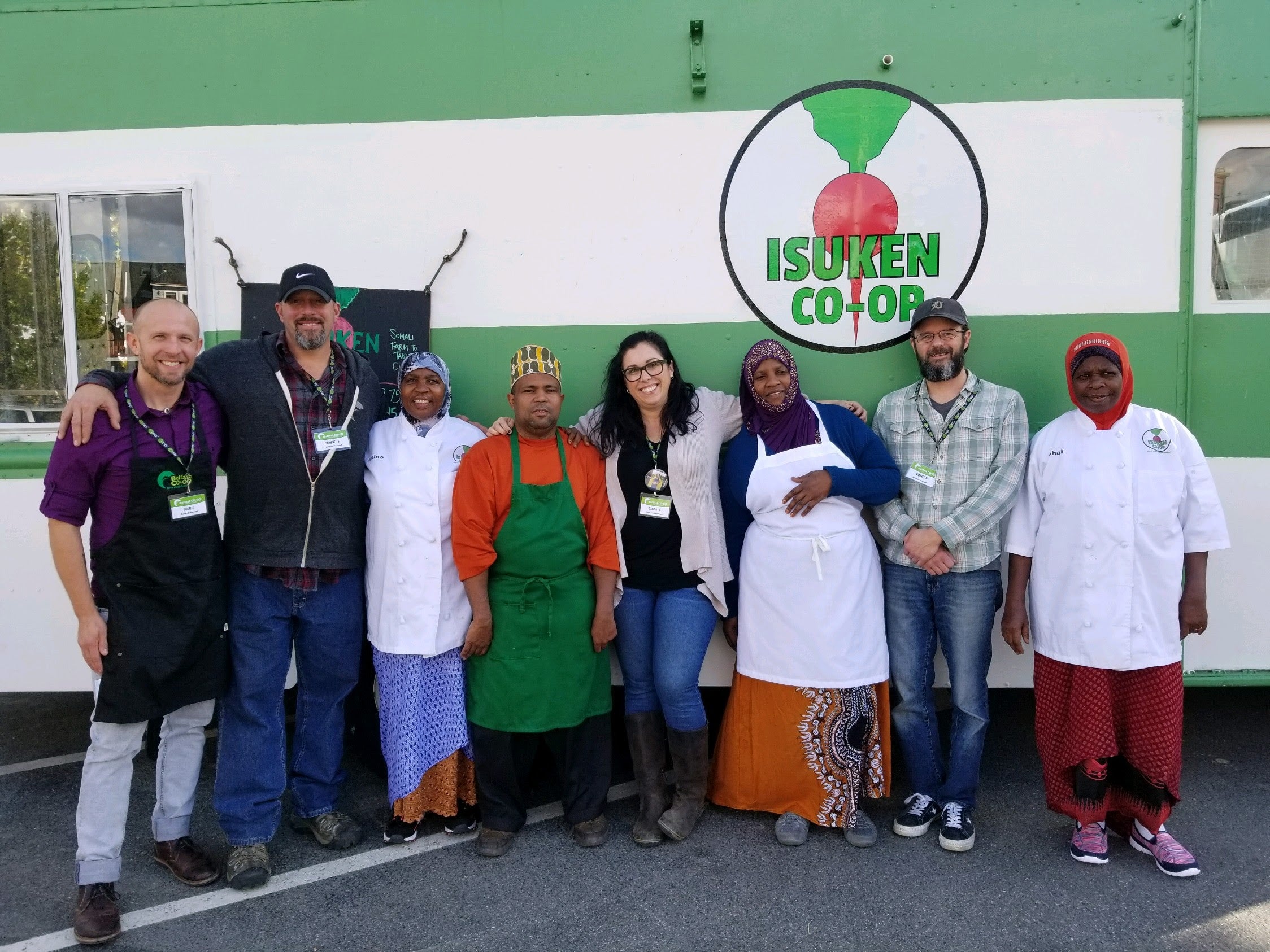
The Cooperative Development Institute, which bolsters the state’s rural economy by helping develop cooperative businesses, has been awarded three grants from the U.S. Department of Agriculture to support the nonprofit’s business education, training and technical assistance efforts.
The center provides support to Maine business enterprises, including those by New Americans in Lewiston and Native Americans in northern Maine.
CDI received $420,000 in federal money — a $200,000 Rural Cooperative Development Grant, a $175,000 Socially Disadvantaged Groups Grant, and, in collaboration with lead applicant Cultivating Community, $45,000 from the USDA’s 2501 grant tract, according to a news release.
The center’s primary objective is to improve the economic condition of rural areas in the six New England states and New York through the development of cooperatively owned businesses, said Doug Clopp, director of development and communications.
Since its founding in 1994, CDI’s technical assistance has supported the development of 153 new cooperatives and mutually-owned businesses, and supported the creation of 746 jobs, while helping retain 693 more. To date, it’s provided education and training programs for approximately 14,150 people throughout the Northeast. “Thanks in part to the support of the recent USDA grant awards that impact will continue to grow and expand, significantly,” the release said.
“CDI stands out for its ability to offer technical assistance services to cooperative enterprises in seven states,” Clopp said. “We’re supporting organizations across all business sectors: food, agriculture, fisheries, forestry, housing, social services, purchasing, retail, wholesale, communications, health, software, energy, arts, and more. We’re serving all categories of members as well: producer, consumer, worker, business owner, landowner, fishermen, and multi-stakeholder cooperatives. That’s a really broad, expansive impact of which we’re very proud.”
Jonah Fertig-Burd, director of CDI’s Cooperative Food Systems Program, said the SDGG grant is supporting CDI work with 12 groups comprising New Americans, Native Americans and people of color, to create cooperatives farms, businesses and land trusts that increase equity and access in the economy.

New Americans, Native Americans developing businesses
Groups supported include the Isuken Co-operative in Lewiston, which recently launched the state’s first Somali-Bantu farm-to-table food truck and catering company in the city.
Other organizations benefiting have been the Eastern Woodlands Rematriation Collective, a group run by Native Americans in northern Maine that aims to develop a more formal network of local Native business projects, including herbal medicine and youth leadership community garden projects organized by members of the collective.
In partnership with Cultivating Community, CDI Cooperative Food System staff is using the USDA 2501 grant resources to continue to support socially disadvantaged farmers in developing their farm businesses, land acquisition and increased access to Maine markets.
CDI Executive Director Noemi Giszpenc said the SDG and 2501 grants will not only help local farmers, “but will also help to change the farming landscape in Maine and the Northeast as more socially disadvantaged farmers are supported to become farm owners.”
The center will work with Cultivating Community over the three-year 2501 grant period to create more cooperatives in Maine, she said.
‘They know what it means to survive with a little’
The USDA 2501 grant will also go to continuing CDI’s technical assistance to farms like the New Roots Cooperative, a Somali-Bantu agriculture business, and the first immigrant-owned cooperative in the state. With the assistance of CDI and CC, the cooperative acquired one of the largest pieces of land under Somali-Bantu control since the Bantu began moving to the region in the early 2000s.
Grant funding will help New American farmers like those in New Roots grow the New American Sustainable Agriculture Project’s Fresh Start Food Hub throughout the state, the CDI release said. It will also make it possible to share resources with other New American farmers throughout the Northeast.
New Roots is four families who have been in the farming business for generations, said Omar Hassan, cooperative marketing and development assistant at CDI, who provides interpretation services to Somali farmers throughout New England.
“They know what it means to survive with a little,” Hassan said. “The last 10 years they were able to join the fight against food insecurity, giving back to the community and producing fresh vegetables and fruits chemical-free. It is an honor to see this farm grow the last three years and to be part of that development.”
RCDG funding was recently used to help the Good Food Council of Lewiston-Auburn organize the LA Farmland Access and Food Economy Conference, which brought together more than 100 people to discuss farmland access in the Lewiston-Auburn area. Organizing partners from the conference have since begun collaborative work on securing farmland for the Somali Bantu Community Association and other farmers in the region.

Awesome post! Keep up the great work! 🙂